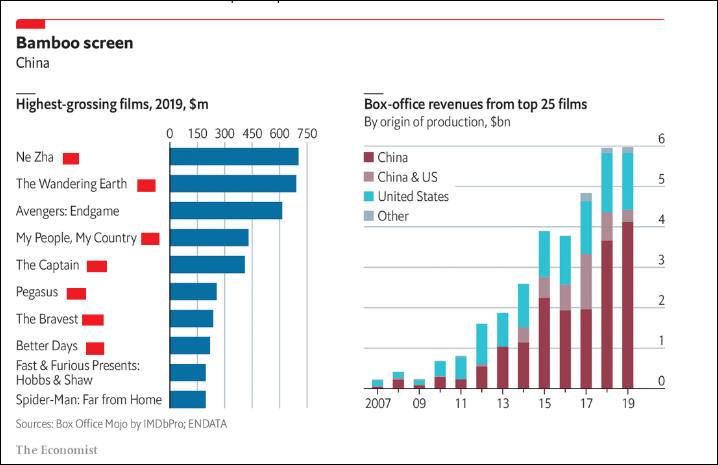
-
One chart explaining why MAGA will never become reality
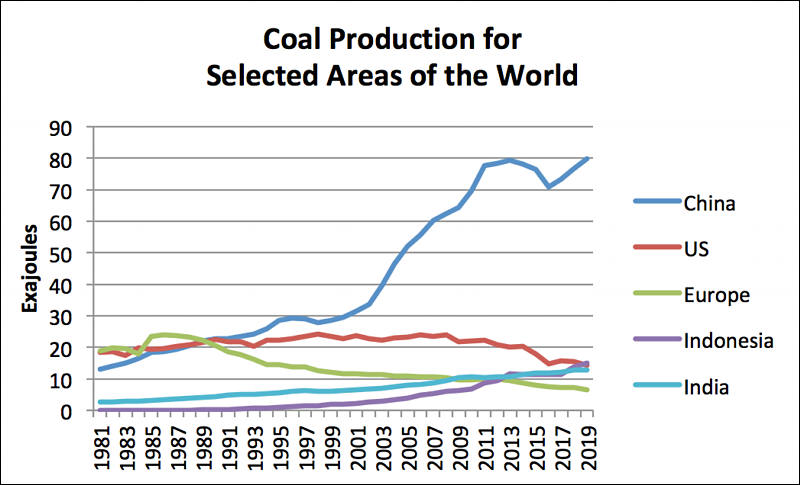

 sa14332.jpg800 x 485 - 62K
sa14332.jpg800 x 485 - 62K -
Tariffs? Coronavirus? China's exports are surging
ZHONGSHAN, China — This was supposed to be the year that China’s export machine began to stall. President Trump had imposed broad tariffs on Chinese goods. Countries like Japan and France pushed companies to shift production from China. The pandemic had crippled China’s factories by the end of January.Instead, China Inc. has come roaring back.After reopening in late February and early March, China’s factories began an export blitz that is still gaining steam. Exports soared in July to their second-highest level ever, nearly matching the record-setting Christmas rush last December. The country has grabbed a much larger share of global markets this summer from other manufacturing nations, entrenching a dominance in trade that could last long after the world begins to recover from the pandemic.China is showing its export machine cannot be stopped — not by the coronavirus and not by the Trump administration. Its resilience lies not only in the country’s low-cost, skilled labor and efficient infrastructure but also in a state-controlled banking system that has been offering small and large businesses extra loans to cope with the pandemic.The pandemic has also found China better placed than other exporting nations. It is making what the world’s hospitals and housebound families need right now: personal protection gear, home improvement products and lots of consumer electronics.At the same time, demand has withered for many big-ticket items exported by the United States and Europe, like Boeing and Airbus jets. And with most economies except China’s now mired in recessions, demand has also faltered for the commodities that most developing countries export, particularly oil.https://www.nytimes.com/2020/08/31/business/trumps-tariffs-coronavirus-china-exports.html
-
New small provocation by US - forcing Taiwan to change passports
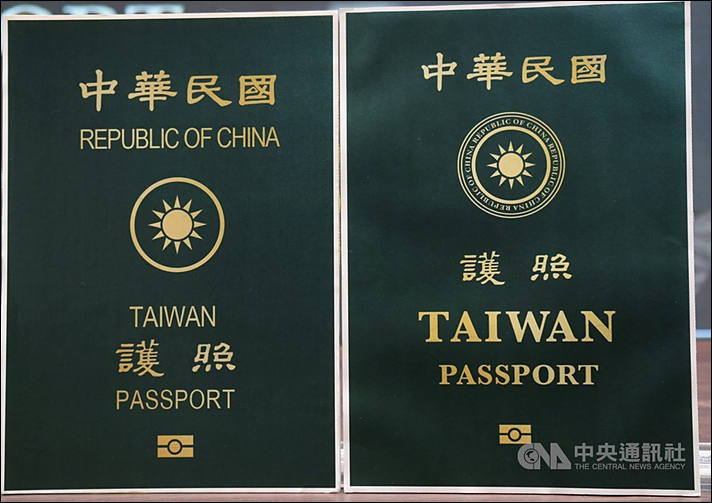
Main reason - remove any mentioning of China.

 sa14347.jpg712 x 503 - 58K
sa14347.jpg712 x 503 - 58K -
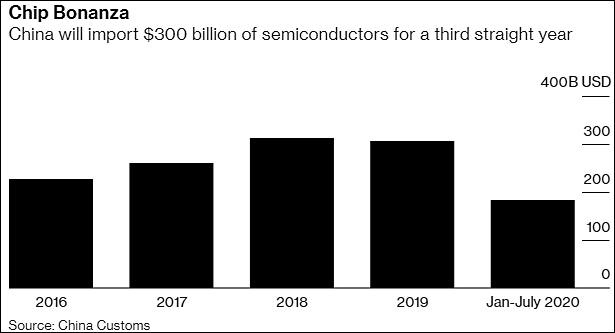
Opportunism of Chinese elites got them where they are now.
They tell that they will be able to reach 5-7nm in very short time, but their own engineers estimates now is 7-9 years at best.
In reality lot of TSMC money came from offshore and HK money that came from government credits and had been stolen by top management of big companies.

 sa14366.jpg615 x 333 - 24K
sa14366.jpg615 x 333 - 24K -
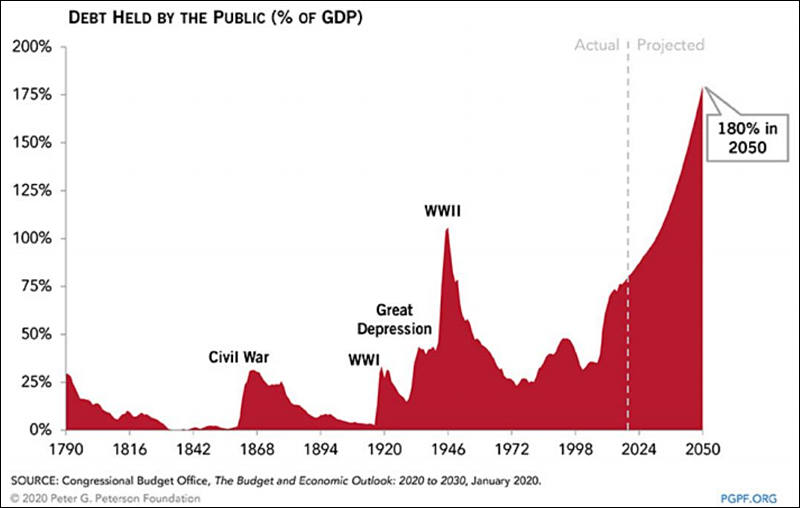
China slowly selling US debt, and it will be average Joe who will be forced to buy this junk.

 sa14372.jpg800 x 508 - 41K
sa14372.jpg800 x 508 - 41K -
The Trump administration is considering whether to add China’s top chipmaker SMIC to a trade blacklist, a Defense Department official said on Friday, as the United States escalates its crackdown on Chinese companies.
A Pentagon spokeswoman said the Defense Department was working with other agencies to determine whether to make the move against Semiconductor Manufacturing International Corporation (0981.HK), which would force U.S. suppliers to seek a difficult-to-obtain license before shipping to the company.
The Pentagon made a proposal to place SMIC on the entity list to the End User Committee, a panel led by the Commerce Department that also includes the State and Energy Departments and makes decisions about entity listings, a person familiar with the matter said. It was not clear whether the other agencies supported the plan.
HiSilicon like sanctions will follow closer to election to fully devastate chips production.
-
100% of all ZTE and Huawei 4G and 5G equipment will be switched off and utilized till 2022 in US and EU
It is expected that same will happen in India, Japan, Australia, NZ, Taiwan, Korea and many Asian states.
-
US is very pleased with Huawei sanctions effects
Before elections we can see another round of sanctions now aimed at leading chip design houses in China (largest of them - HiSilicon already fully down) and also at Xiaomi and BBK brands. Damage to the latter can be tremendous, it is big talk now happening between US, UK, Australia and EU countries on synchronized ban of all smartphones and smart products from China due to security issues, Japan can join closer to January.
Lack of good profits on outside market and no access to any modern main LSI can lead to almost total destruction of domestic market also (drop can reach 70% in early March). Huge impact will be also on firms who make sensors and chips for military and security markets.
It is few industry rumors that Z-CAM is related directly to Chinese military by providing them some slightly modified cameras (hence big focus on Ethernet ports) for industrial production inside fully secret facilities. If this is indeed the case Z-CAM products can be blocked from US due to company inclusion in one of further sanctions list.
-
New round, new sector
Amazon is banning foreign sales of plants and seeds into the US as authorities try to weed out who may be sending packets of mystery seeds to people who did not order them.
The packets of seeds bearing postmarks from China have been arriving at homes around the world for several months, with the US Postal Service, Department of Homeland Security, Customs and Border Protection, and Department of Agriculture all investigating the matter in the US.
Of course it is US companies who specially organized such parcels from China to US.
Problems is that Chinese sellers had been very active and pushing out US companies from extremely profitable and previously local market, hence all this circus and US government trying to help. Amazon also.
Of course, some sellers, mostly small can cheat, but lot of seeds are very good and it is many very reputable sellers now in China.
It is just nice thing to stop using horrible Amazon marketplace and start using native Chines places.
-
Huawei reportedly has slashed component orders for its forthcoming Mate 40 series products by 30%, according to sources from Taiwan's handset supply chain makers.
And it is just small initial cuts.
-
Dreams, sweet dreams
China is poised to step up developing third-generation semiconductors including SiC and GaN materials for wide-ranging applications including new 5G communications, energy vehicles and household appliances, as it has covered the development in its 14th five-year plan running 2021-2025, according to industry sources.
Richard Chang, founder of both SMIC and SiEn (Qingdao) Integrated Circuit, has also expressed optimism that China has not lagged far behind internationally in third-generation semiconductors, which are still facing challenges in mass production, and can well catch up eventually.
It is just one issue, SMIC told that they will follow US orders. As they literally have almost all equipment and all software made in US and EU.
It seems like Chinese elite went into trap as they constantly checked super optimistic reports but no one told them situation with core core manufacturing equipment and how much their internal companies depend on their enemies.
-
A look at the trade war from Singapore TV
-
Kirin 9000 and Kirin 9000E will be last Huawei smartphone LSI's
TSMC will stop making last Kirin chips in few days time and last batches will be sent to Huawei in September already.
Both chips will support 5G and stock can be enough for 3-4 months of limited sales of flagman models.
Different analytics tell about different stock levels that Huawei has now, but best estimates are that it is no more than 3-5 months for all chips except few most important ones made for their infrastructure products and servers.
-
They are bad, bad boys!
Fifteen EU member states have breached bloc-wide rules in agreeing bilateral commercial deals with China as part of Beijing’s ambitious belt and road initiative (BRI), according to a damning report published by the European Court of Auditors on Thursday (10 September).
Auditors have probed the scope of Chinese investments into the EU, identifying ‘multiple risks’ of both a political and economic nature, while also drawing attention to how member states have been systematically violating EU rules in bypassing the European Commission before tying up trade deals with China.
On a bilateral basis, China has formed 15 agreements with EU member states as part of its Belt and Road Initiative, a landmark development plan involving infrastructure and investments stretching across more than 80 countries in Europe, Asia and Africa.
Such member states that have signed agreements with China include Italy, Greece, Estonia, and Croatia.
-
Taiwanese sites lately went off the rails
Manufacturers are leaving China amid intensifying trade disputes between Beijing and Washingtion, but the Asian giant will continue to dominate manufacturing operations in the next 2-3 years, especially for Taiwanese manufacturers, according to industry sources.
As China' manufacturing advantages decline, many supply chain players are seriously mulling moving their production out of the country, with Vietnam, India and Indonesia as popular destinations for relocation.
I love them, they better think how to to not become another Chinese province factually during next 2-3 years.
-
Big warning for Xiaomi and BBK
Arm stands to lose its Chinese clients by becoming a part of the US-based Nvidia amid China's campaign to shed its reliance on American IC suppliers.
-
On March 1, 2018, US President Donald Trump claimed, “Trade wars are good and easy to win.” However, Trump’s decision to wage a trade war against China turned out to be a suicidal move.The last two and half years have witnessed that trade war significantly hurting the US economy. Besides, the ongoing technology war between the world’s two largest economies is pushing the US economy to the brink amid the Covid-19 pandemic and proving China to be self-reliant and resilient. The trade and technology war has been more pain than gain for the US economy.Trump’s team looks clueless and mediocre. Trade adviser Peter Navarro, Secretary of State Mike Pompeo, Trade Representative Robert Lighthizer, and Treasury Secretary Steven Mnuchin have been claiming that they have been punishing China. They drove Huawei out of the US and some allied countries successfully. Eventually, they believe, they will win the trade and technology war against China.However, the contrary is true: They are punishing American producers, consumers, workers, and suppliers. They are abandoning the United States’ core principles that were supposed to be the most influential in the post-World War II world.
The technology war between China and the US has made many US companies losers and forced Chinese companies to find alternative suppliers. As a result, Chinese companies have emerged as a winner. The hawkish US policy is now pushing China to be more resilient and self-sufficient. America’s semiconductor giants will be the biggest losers. Besides, the technology war will make the US less innovative and less inventive in the future.US companies earn by selling high-priced goods and services based on intellectual property such as software for computers and electronic devices, trademarks, patents, production technologies, and their franchises. But with the technology war, it seems the US is shooting itself in the foot.Suppose the technology war continues. China successfully develops its own software and operating systems for mobile phones, computers, and other electronic devices and makes them publicly available. In that case, the US companies will lose significant revenue they are receiving now from China’s companies and the rest of the world. No one pays for software if substitutes are available for free.Besides, the US is losing the market of the world’s largest middle-class country, one that can consume expensive American products. -
Morgan Stanley’s former Asia Chairman Stephen Roach and Bridgewater founder Ray Dalio, among others, have recently warned that the US dollar may lose a third of its value. A chronically low savings rate, a large current account deficit and a huge federal financing requirement, Roach argued, will force a sharp devaluation of the US currency.Declining empires and declining currencies stumble along until something comes along to put them out of their misery. Post-WW2 Britain is a case in point. Once the dominant world power, it issued the world’s main reserve currency and ran a chronic current account deficit. It allowed its industrial base to deteriorate and its skills to stagnate. The market for British assets eventually cleared as the British pound fell by almost two-thirds between 1967 and 1985.
-
Based on what I know, Beijing won't approve current agreement between ByteDance, TikTok's parent company, and Oracle, Walmart, because the agreement would endanger China's national security, interests and dignity.
Will be fun.
-
Today, as part of our continuing fight against communist oppression, I am announcing that the Treasury Department will prohibit US travellers from staying at properties owned by the Cuban government. We're also further restricting the importation of alcohol and Cuban tobacco.
All for the the freedom of the oligarchs to rape children!
-
Executives at Qualcomm have visited Taiwan-based foundries for the purpose of securing capacity support if deliveries from China's Semiconductor Manufacturing International (SMIC) are affected by US trade sanctions, according to a report by Taiwan's TechNews.
Qualcomm is among SMIC's top-3 clients, accounting for about 13% of the foundry's total wafer revenue, the report quoted industry sources as saying. Qualcomm has contracted SMIC to fabricate power management chips using 0.18-micron process technology, and handset application processors and SoCs using 28nm and 14nm processes.
Taiwan's foundries including TSMC, United Microelectronics (UMC) and Vanguard International Semiconductor (VIS) are all being approached by Qualcomm's executives for the potential orders shift.
Seems like disinformation by Taiwan manufacturers.
-
WASHINGTON (Reuters) - About 3,500 U.S. companies, including Tesla Inc, Ford Motor Co, Target Corp, Walgreen Co and Home Depot have sued the Trump administration in the last two weeks over the imposition of tariffs on more than $300 billion in Chinese-made goods.The suits, filed in the U.S. Court of International Trade, named U.S. Trade Representative Robert Lighthizer and the Customs and Border Protection agency and challenge what they call the unlawful escalation of the U.S. trade war with China through the imposition of a third and fourth round of tariffs.The legal challenges from a wide variety of companies argue the Trump administration failed to impose tariffs within a required 12-month period and did not comply with administrative procedures.The companies challenge the administration’s “unbounded and unlimited trade war impacting billions of dollars in goods imported from the People’s Republic of China by importers in the United States,” according to a suit filed by auto parts manufacturer Dana Corp.
-
Next goes SMIC, all Huawei hopes slashed
The United States has imposed restrictions on exports to China’s biggest chip maker SMIC after concluding there is an “unacceptable risk” equipment supplied to it could be used for military purposes.
Suppliers of certain equipment to Semiconductor Manufacturing International Corporation will now have to apply for individual export licenses, according to a letter from the Commerce Department dated Friday and seen by Reuters.
The latest move marks a shift in U.S. policy from earlier this year, when applicants seeking “military end user” licenses to sell to SMIC were told by the Commerce Department that the licenses weren’t necessary, according to three people familiar with the matter.
SMIC said it had not received any official notice of the restrictions and said it has no ties with the Chinese military.
US will tighten grip on SMIC even more within next 2 months.
-
Over the next four years, we will transform America into the world's manufacturing superpower, and we will end our dependence on China once and for all - Trump said.
What is required this time? Famine? Plague with 60% fatalities?
Howdy, Stranger!
It looks like you're new here. If you want to get involved, click one of these buttons!
Categories
- Topics List23,992
- Blog5,725
- General and News1,354
- Hacks and Patches1,153
- ↳ Top Settings33
- ↳ Beginners256
- ↳ Archives402
- ↳ Hacks News and Development56
- Cameras2,367
- ↳ Panasonic995
- ↳ Canon118
- ↳ Sony156
- ↳ Nikon96
- ↳ Pentax and Samsung70
- ↳ Olympus and Fujifilm101
- ↳ Compacts and Camcorders300
- ↳ Smartphones for video97
- ↳ Pro Video Cameras191
- ↳ BlackMagic and other raw cameras116
- Skill1,960
- ↳ Business and distribution66
- ↳ Preparation, scripts and legal38
- ↳ Art149
- ↳ Import, Convert, Exporting291
- ↳ Editors191
- ↳ Effects and stunts115
- ↳ Color grading197
- ↳ Sound and Music280
- ↳ Lighting96
- ↳ Software and storage tips266
- Gear5,420
- ↳ Filters, Adapters, Matte boxes344
- ↳ Lenses1,582
- ↳ Follow focus and gears93
- ↳ Sound499
- ↳ Lighting gear314
- ↳ Camera movement230
- ↳ Gimbals and copters302
- ↳ Rigs and related stuff273
- ↳ Power solutions83
- ↳ Monitors and viewfinders340
- ↳ Tripods and fluid heads139
- ↳ Storage286
- ↳ Computers and studio gear560
- ↳ VR and 3D248
- Showcase1,859
- Marketplace2,834
- Offtopic1,320


